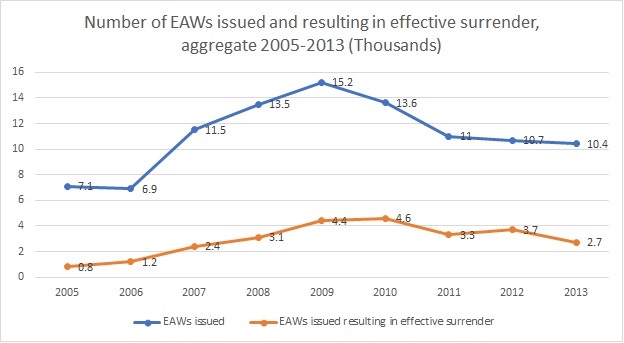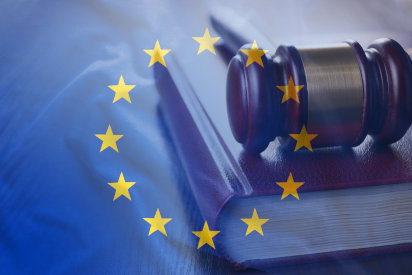The European Arrest Warrant (EAW), valid throughout all member states of the European Union (EU), is used to arrest and extradite a fugitive to the issuing state so that they can face criminal prosecution.
The EAW Framework Decision (Framework Decision) came into force in 2004, with the aim of streamlining the extradition process throughout the EU.
How do EAWs work?
A country receiving an EAW may execute the warrant, even if the offence to which it relates does not constitute a criminal offence in its jurisdiction. This principle applies to a wide range of offences including corruption, computer-related crime, fraud, money laundering and drug trafficking.
Prior to the Framework Decision, various EU member states such as Austria, France and Germany had domestic rules which prevented the extradition of their nationals. Member states generally can no longer refuse to surrender their nationals under the EAW Framework, however grounds for refusal may exist in certain circumstances.
Grounds for refusal
The EAW Framework Decision sets out various circumstances in which the executive judicial authority must or may refuse to surrender a person subject to an arrest warrant.
Mandatory grounds for refusal
Under the Framework Decision the executing judicial authority must refuse to surrender the requested person if:
- The alleged offence comes under the jurisdiction of the courts of the executing state and is the subject of an amnesty there,
- The requested person has been acquitted in a member state of the European Union of an offence in respect of the same acts as contained in the arrest warrant, or was convicted of that offence and has served the sentence imposed (if any) for that offence, or
- The requested person is below the age of criminal responsibility in the executing state
Whilst there are no explicitly stated mandatory grounds for refusal if the surrender would infringe a person’s human rights, recitals (12) and (13) of the preamble and Article 1(3) do refer to human rights. For example, recital (13) states that:
No person should be removed, expelled or extradited to a State where there is a serious risk that he or she would be subjected to the death penalty, torture or other inhuman or degrading treatment or punishment.
Optional grounds for refusal
Under the Framework Decision the executing judicial authority may refuse to surrender the requested person if:
- The requested person is being prosecuted in the executing member state for the same act;
- The prosecutorial authorities in the executing state decided not to prosecute the requested person, or, having begun such a prosecution halted it;
- The requested person was being prosecuted in the executing member state, that case having progressed to final judgement;
- The act on which the EAW is based comes under the jurisdiction of the executing member state and would be statute-barred there;
- The requested person was prosecuted in a third country, the final judgement having been made, provided that the sentence in respect of the offence (if one was imposed) had been served or may no longer be executed under the laws of the third country;
- The offence was committed or alleged to have been committed in the territory of the executing state; or
- The offence was committed or alleged to have been committed other than in the territory of the issuing state and the law of the executing state would not allow for the prosecution of the same offence if committed outside its territory.
Procedure
Issuing judicial authority
A European Arrest Warrant may only be issued by the competent judicial authority in an EU member state or a state with a special agreement with the EU. ‘Judicial authority’ typically refers to a court or a judge, however many member states have designated public prosecutors as their judicial authorities for the purposes of the framework decision, which has been a source of contention.
Transmission
EAWs do not need to be transmitted to any particular state. When a person the subject of an EAW is found within the jurisdiction of a member state and arrested, that member state is required by the Framework Decision to execute the warrant.
Minimum threshold
The EAW Framework Decision requires that a warrant can only be issued when an offence is punishable by imprisonment or a detention order for a maximum period of at least one year, or in conviction cases, where the remaining term of imprisonment is four months or more. Controversially, this can include a wide range of trivial offences, and EAWs have been issued for offences such as low level drink driving and drug possession.
Arrest
Once arrested, the subject of the EAW has the right to be informed of the warrant and its contents, their right to surrender as well as their right to the assistance of legal counsel and an interpreter.
Time limits
The Framework Decision prescribes time limits for the making of a final decision to a surrender request. Where a requested person consents to his or her surrender, the executing judicial authority should make a final decision within ten days of such a consent. Where a requested person refuses to consent to his or her surrender, the executing judicial authority should make a final decision within 60 days of the arrest.
How often are EAWs issued and executed?
The European Parliament provides some insight into the number of EAWs issued between 2005-2013, highlighting the difference between the number of warrants issued and those successfully executed, as well as the trends over time.




